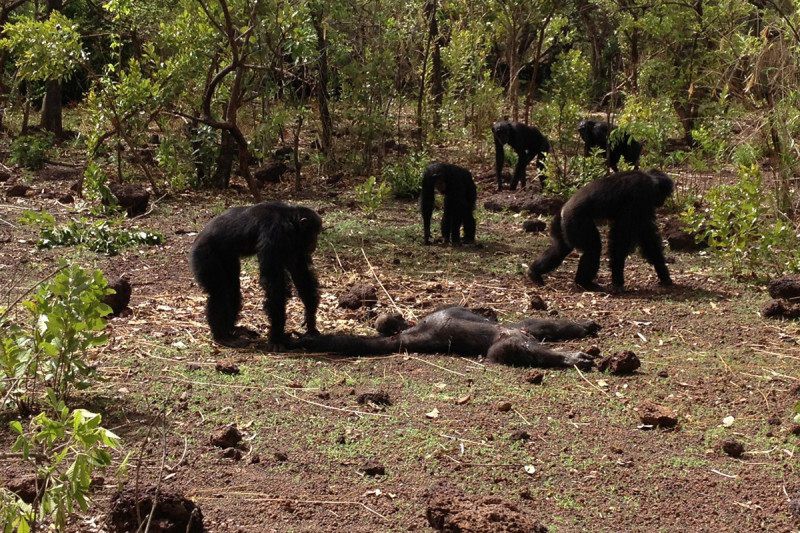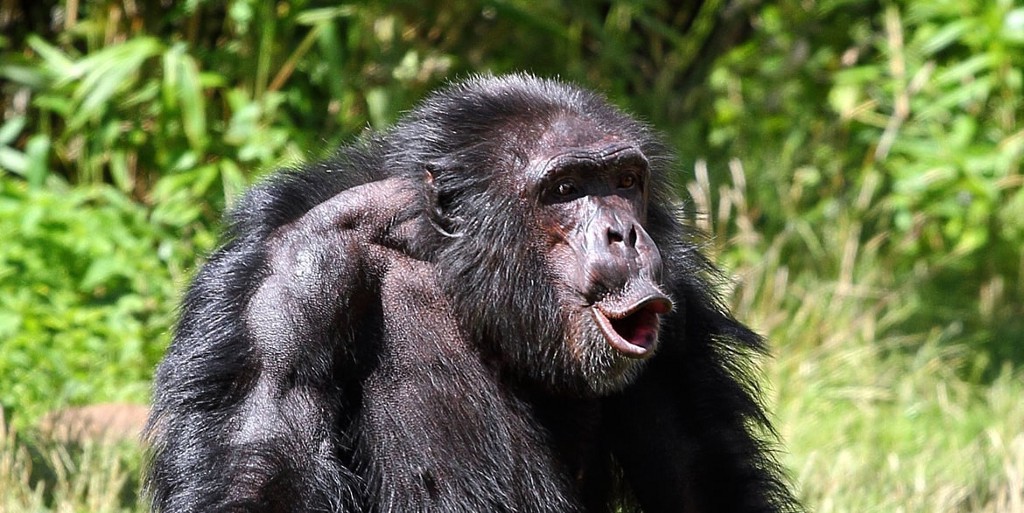Chimps Beat Up, Murder And Eat Their Tyrant
by ilana_gordon, 8 years ago |
5 min read
Politics is a dangerous game, even for primates.
It’s a plot line that wouldn’t seem out of place in an episode of “Game of Thrones.” A tribe of chimpanzees in West Africa beat up, murdered — and then ate — a member of their own tribe. The victim was a 17-year-old chimp named Foudouko. His alleged crime? Piss-poor leadership.The rise and fall of Foudouko
In 2005, in a 10-square-mile stretch of savanna in southeastern Senegal, an ape named Foudouko ascended to power and ruled over more than 30 western chimpanzees. But Foudouko’s aggressive leadership style rubbed some of the younger, potential alphas the wrong way, and when his deputy and closest ally, Mamadou, suffered a leg injury in 2007, the tribe seized the opportunity to stand up to Foudouko.
The gender politics of chimpanzees
When female chimpanzees reach sexual maturity, they leave their birth communities in search of a new tribe — this is an evolutionary adaptation designed to help chimps avoid inbreeding. The smaller and more isolated the tribe, the more likely a female is to leave.
Coup d’état
In the early dawn of June 14th, 2013, Jill Pruetz and her assistant awoke to the sounds of chimps in an uproar. Upon investigation, they discovered Foudouko’s body spread-eagled on the ground; he was dead. The wounds on his body gave the scientists some insight into what might have happened: injuries on Foudouko’s fingers imply that at least two chimps held him down while others beat him. His body was covered in blood leaking from a bite wound on his right foot and a gash on his back. It appears other chimps from the tribe cracked his ribs and ripped his anus open. It is not unusual for chimps to battle with neighboring tribes, but it is uncommon for them to murder within their own ranks. Foudouko’s killing is one of only nine examples where a group of chimps has killed one of their own adult males. Cannibalism among apes is even less likely. But that’s exactly what happened next: Researchers say that even after Foudouko’s death, members of his tribe continued to throw rocks, prod the body and rip off pieces of flesh with their teeth. Surprisingly, most of the aggression stemmed from Farafa, the mother of Foudouko’s two closest allies, Mamadou and David. In an interview with New Scientist, Pruetz says: “It was striking. The female that cannibalized the body the most, she’s the mother of the top two high-ranking males. Her sons were the only ones that really didn’t attack the body aggressively.” This is pure speculation, but it seems that Farafa felt Foudouko was a bad influence on her sons and was taking out her anger on her sons’ friend’s body.Politics is a dangerous game
Chimps, like humans, kill for many reasons: to expand or defend territory, to ensure their genes will be passed on, to impress mates or protect their food sources. But if Foudouko’s story is any indication, chimps also kill to send a political message. Politicians everywhere would be wise to take note: Piss off your constituents and you might get your anus ripped out.✕
Do not show me this again
